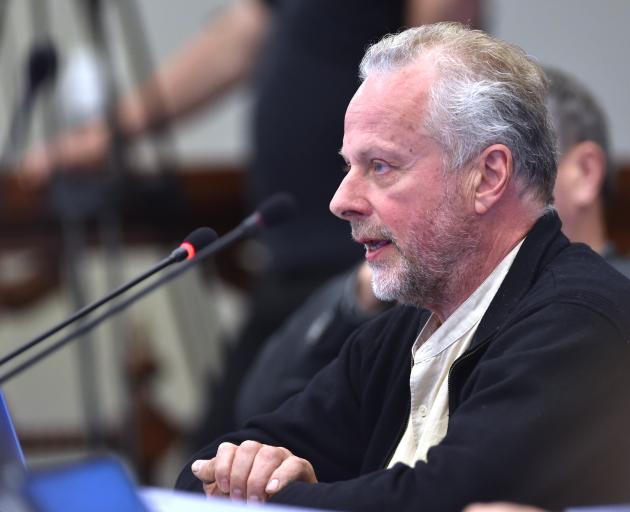
Vandervis complaint ‘pick on Lee time’
Here we go again, it’s pick on Cr Lee Vandervis time.
As someone who grew up bilingual and coming from a heritage where there are three official languages I can claim to have some understanding of the situation. What is happening now is not a recognition and respect for Māori language but a confusing, mixed-up version that is neither fish nor fowl.
Whether we like it or not the reality is that for the majority of people living in New Zealand English is their first language and one of the major languages of the world we live in. We should have everything in both languages with English first, then repeated in Māori, not (to use Lee’s words), a Māorified version of the whole thing.
It sounds as though Cr Marie Laufiso is on a power trip. No-one should be forced to actively participate in something they do not fully understand the language of and may include elements they do not believe in. All that should be required of councillors is respectful attendance and to be forced to sing a waiata is totally unacceptable.
Sorry Cr Laufiso, but you are way out of line and totally exaggerating your self-importance. We elect councillors to manage our city in this, the 21st century, and while councillors have an obligation to have a respect for the past, expecting them to spend a lot of time and energy on matters of ceremony rather than the necessities is misguided.
Faux offence
Another day, another character assassination attempt upon Lee Vandervis promulgated by the ODT. But hey, the injury of mispronouncing the word Māori must be severe, and refusing to face a sham quasi-tribal inquisition, Te Pae Māori, which is another senseless entity of imposing bureaucrats to bludgeon the rest of us, is surely tantamount to heresy.
Having direct takata-whenua links with Otākou, Karitane and Maranuku, I find the whole charade of ethnic tokenism acted out by local government to be needless, if not cringeworthy. Yet Marie Laufiso, who is not takata-whenua, spends her time screaming at the sky, pretending to be offended on the behalf of Māori, instead of allowing others and herself to get on the job they were elected to do in the first place.
Waste of money
It is extraordinary that Dunedin ratepayers money is being wasted on such matters. It is reminiscent of school days, where someone said something you didn’t like, you might have replied "I’m going to tell on you", knowing the complainant would be believed and the alleged offender told to improve his/her behaviour, regardless of the rights or wrongs involved.
I trust ratepayers are taking note of the councillors who initiate such undoubtedly expensive and certainly divisive complaints. Dunedin does not need them as councillors.
The worst aspect is that the complaint will undoubtedly be upheld, and after spending thousands of dollars on the matter the independent investigator will be considerably wealthier, their client the DCC will be pleased, and the ratepayers will be considerably worse off.
I knew Cr Vandervis over 30 years ago and liked him for being not only forthright but also having an excellent business brain. I doubt that has changed in the intervening years. What will have changed is the DCC codes will have been honed to ensure that being forthright, businesslike, or objective is totally unacceptable.
How could the mispronunciation of a word , or failure to sing at a business meeting, be unacceptable behaviour?
I would suggest that if the investigator rules in favour of the complainant as expected, that the DCC immediately resolve to decide on a better method of resolving councillor disputes, that does not cost the ratepayers a fortune to satisfy bruised egos, which is businesslike, objective, and cost effective
Treaty and sovereignty
Chris Trotter’s column (ODT 27.12.23) bewails the "bitterly contested ideological ground" of New Zealand history, but then ramps this up with "angry partisan" rhetoric himself. Crucially, he chooses to ignore the crux of Treaty historical scholarship over the last 50 years: the profound differences between English and Māori versions.
Te Tiriti o Waitangi was presented and explained to rangatira, then signed by most of them and by Hobson, which makes it the definitive version. Rather than sovereignty, the Crown gains "kāwanatanga" ("governorship"), a vague Biblical term. Contemporary accounts confirm that Hobson’s and missionaries’ explanations focused on controlling rogue Pākehā and preventing French colonisation, without discussion of European concepts of sovereignty. Indeed, Māori were to retain "tino rangatiratanga" (complete chieftainship over their lands, dwelling places and taonga). It is clear that British sovereignty was not ceded under the Treaty, and we need to accept this historical fact.
Address Letters to the Editor to: Otago Daily Times, PO Box 517, 52-56 Lower Stuart St, Dunedin. Email: editor@odt.co.nz











